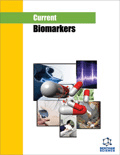Abstract
Gastrointestinal cancers remain a significant health problem worldwide. Resistance to treatment in a subset of patients is a major problem and personalized treatment is expected to improve prognosis in these individuals. Assessment of biomarkers, which are generally genes, proteins, phosphoproteins and/or microRNAs (miRNAs), and their levels in tumor or blood, leads to a view of the molecular characteristics (signature) of a given patient’s tumor and thus provides information that will enable personalized treatment. miRNAs are short noncoding RNAs that regulate gene expression at the post-transcriptional level. Deregulation of miRNA expression has been demonstrated in various cancers, including gastrointestinal (GI) cancers. The high stability of miRNAs in the blood circulation offers enormous advantage for prognostic applications as blood samples can be easily procured noninvasively. Circulating miRNAs have been demonstrated to be valuable instruments in prognosis of GI cancers. Additionally, serial collection of blood samples is possible for monitoring the progress of cancer, something that cannot be done reasonably with tumor tissue. We review previous reports that used circulating miRNAs as biomarkers in the prognosis of GI cancers, and also highlight the fascinating possibility of using the gathered information to identify new therapeutic targets.
Keywords: Circulating microRNA, colorectal cancer, esophageal cancer, gastric cancer, gastrointestinal cancers, hepatocellular carcinoma, pancreatic cancer.
 7
7


